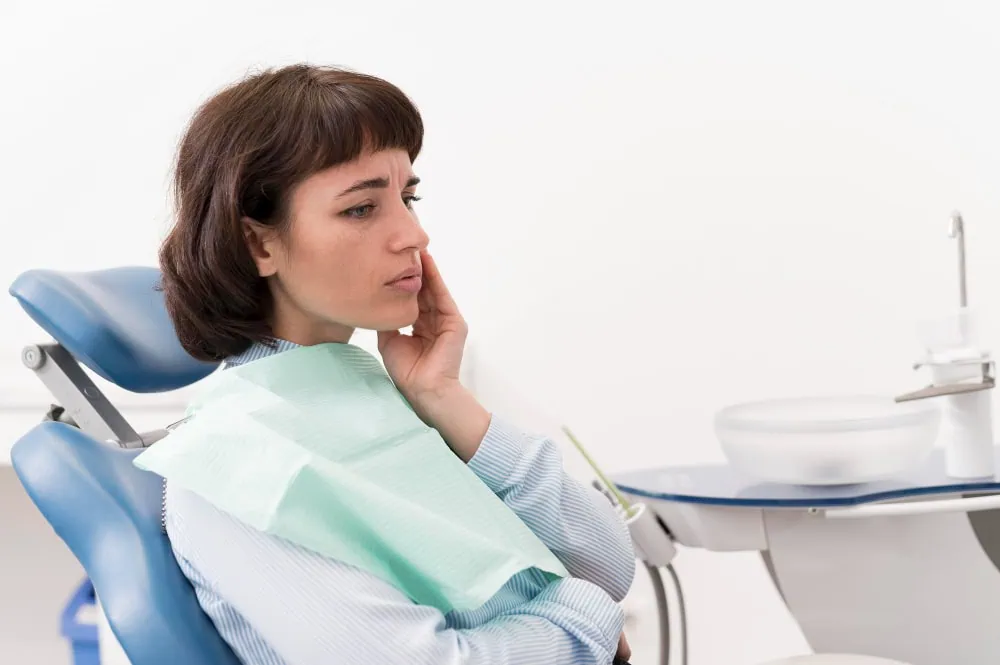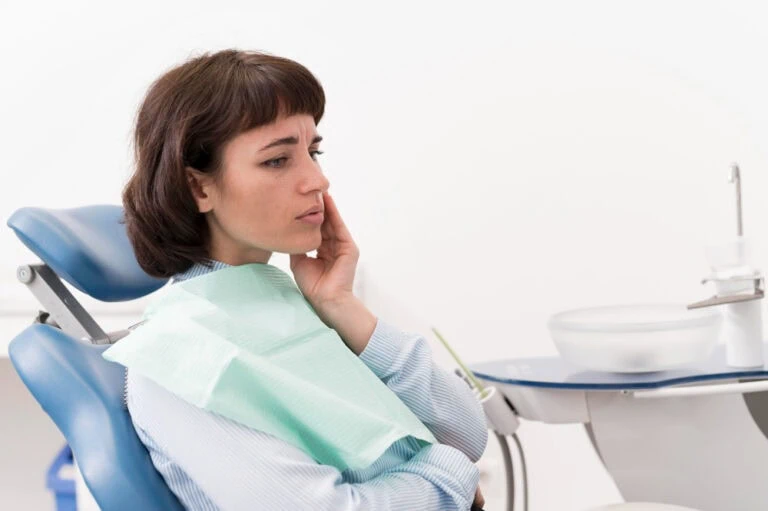What does a black spot on tooth mean?
A black spot on tooth can be alarming, but understanding the cause helps you take the right action. At Neola Dental in Minneola, FL, we diagnose and treat black spot on tooth issues every day. According to the American Dental Association, a black spot on tooth may indicate cavities, staining, or tartar buildup that requires professional evaluation.
Common locations on teeth
A black spot on tooth commonly occurs on the chewing surfaces of molars and premolars, where food particles and plaque accumulate. These spots may also appear near the gum line or in crevices, making them harder to clean and more prone to bacteria buildup.
Causes of a black spot on tooth
Tooth decay and cavities
A black spot on tooth is often an early sign of tooth decay. Bacteria in the mouth produce acids that erode tooth enamel, leading to cavities. These spots may darken over time as the decay progresses, eventually forming holes or pits in the tooth surface.
Staining from food and beverages
Frequent consumption of dark-colored foods and drinks, such as coffee, tea, red wine, and soda, can lead to extrinsic staining. Over time, these stains can penetrate the enamel, causing a black spot on tooth or brown discoloration.
Tartar buildup
When plaque hardens into tartar due to inadequate brushing and flossing, it often appears as a dark spot near the gum line. Tartar not only affects the tooth appearance but also contributes to gum disease and other oral health problems.
Enamel hypoplasia
This condition occurs when enamel does not form properly during tooth development. The weaker enamel may appear discolored, often with black or brown spots, making teeth more susceptible to damage and decay.
Dental trauma
Injury to a tooth can cause internal bleeding or damage to the pulp, leading to dark discoloration over time. Trauma-related black spots are typically localized to the affected tooth.
Symptoms of a black spot on tooth
Pain or sensitivity
A black spot on tooth caused by decay often leads to symptoms like sharp pain or sensitivity to hot, cold, or sweet foods. This discomfort occurs because the enamel has been compromised, exposing the underlying dentin or nerves.
Changes in tooth texture
A black spot on tooth might feel rough or sticky when touched with the tongue or a dental instrument. These textural changes are often a sign of underlying decay or tartar accumulation.
Diagnosis of a black spot on tooth
Visual examination by a dentist
During a routine dental check-up, your dentist will visually inspect your teeth for any discoloration or abnormalities. Special tools, such as dental mirrors, can help detect a black spot on tooth in hard-to-reach areas.
Use of dental X-rays
X-rays are an essential diagnostic tool for identifying decay beneath the tooth surface. These images provide detailed insights into the extent of the issue, helping the dentist develop an appropriate treatment plan for your black spot on tooth.
Treatment options for a black spot on tooth
Professional dental cleaning
For a black spot on tooth caused by staining or tartar, a professional cleaning at Neola Dental in Minneola, FL can effectively remove the discoloration. Scaling and polishing techniques restore the tooth natural appearance.
Cavity fillings and restorations
If the black spot on tooth is due to decay, your dentist may recommend a filling to restore the tooth structure. Advanced cases might require crowns, inlays, or onlays to provide additional support.
Whitening treatments for stains
Extrinsic stains can be treated with professional teeth whitening procedures. These treatments use safe, effective bleaching agents to remove discoloration and brighten your smile.
Preventive measures
Maintaining a consistent oral hygiene routine is key to preventing a black spot on tooth. This includes brushing twice a day with fluoride toothpaste, flossing daily, and using an antibacterial mouthwash. Regular dental visits are also essential for early detection and prevention.
When to see a dentist for a black spot on tooth
Schedule a dental appointment as soon as you notice a black spot on tooth that does not improve with brushing or persists over time. Ignoring the issue can lead to more severe problems, including tooth loss or infection. Early intervention allows for more conservative and cost-effective treatments.
If you are in the Minneola, FL area, Neola Dental provides expert care to address a black spot on tooth and other dental concerns. Schedule your appointment today to keep your smile healthy and vibrant! Call us at (352) 717-2177 or visit our office at 825 US Hwy 27 #104, Minneola, FL 34715.

Josaida Contreras is a Doctor of Dental Surgery and Endodontics specialist with nearly 20 years of experience. Educated in both Latin America and the U.S., she continues to expand her expertise through advanced training in implant dentistry.







